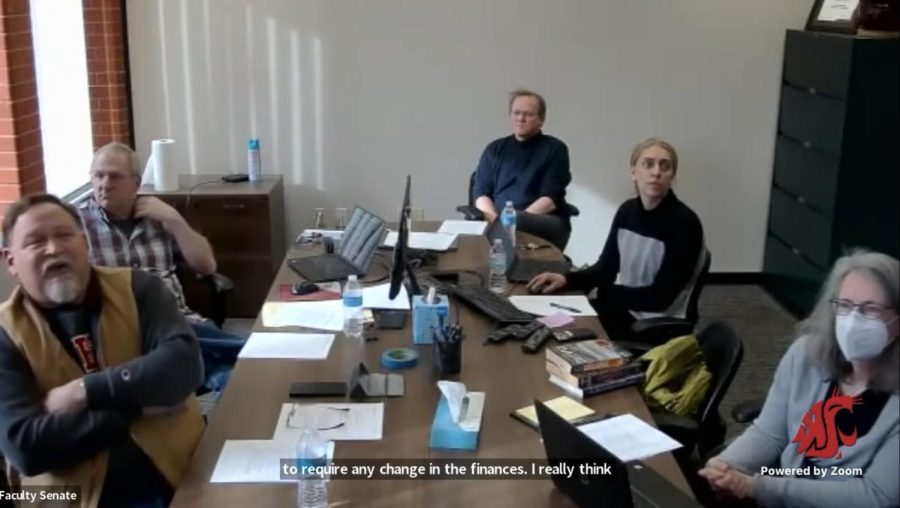WSU faculty senators choose chair-elect
Senate changes freshman to first-year student, considers creating consortium in Yakima
Eric Shelden will assume the responsibilities of Faculty Senate chair during the 2023-24 school year.
March 26, 2022
Faculty Senators voted for Eric Shelden, School of Molecular Biology associate professor, as their chair-elect during their meeting Thursday.
Of the 86 faculty senators, 63 cast votes and one abstained. Shelden received 42 votes and Jeannette Mageo, professor of anthropology, received 21 votes, Faculty Senate Chair Doug Call said.
Shelden has worked at WSU for 23 years, according to his candidate statement. Shelden plans to improve communication between the Faculty Senate and faculty at-large by visiting at least one of each of the 200 department’s faculty meetings. He would also like to provide information on how the results of various surveys that faculty take are used.
Shelden will serve as senate chair-elect for the 2022-23 school year and will assume the responsibilities of Faculty Senate chair during the 2023-24 school year, according to the Faculty Senate’s website.
Action Items
Senators voted to replace the word “freshmen” with “first-year student.”
WSU follows in the footsteps of Yale and Penn State, who each enacted this language change, according to a memo provided to the Faculty Senate.
The senate updated the faculty manual to not require the Office of the Provost to conduct a separate investigation about conduct complaints brought to the office after being previously investigated by individual academic departments. The other approved change to the faculty manual removed gendered language, according to the agenda.
The senate approved several new classes, including Political Economy, Chemical Engineering Thermodynamics II and Black American Music: Roots to Fruit.
Special Presentation
The senate heard a presentation from Daryll Dewald, WSU vice president of Health Sciences and Craig Parks, Vice Provost for system innovation and policy. Dewald and Parks shared their desire to transition WSU’s Health Science presence in Yakima from an instructional site to a consortium.
An instructional site is a temporary location that has a very narrow purpose. The expectation is that an instructional site will be temporary and vacated in time, Parks said.
“Nothing that we’re doing in Yakima, meets and fits the definition [of an instructional site],” Parks said.
A consortium is considered to be longer lasting than an instructional site, he said. The site should meet some sort of continental need for students or the area of the site.
A consortium status would give WSU’s Yakima site the ability to make decisions about the facilities they use. Parks said the Northwest Commission on Colleges and Universities has included WSU in decision making, but as a consortium, WSU would be able to make relevant decisions about the location.
“Most people wouldn’t even know that our nursing program, which is well over 100 students strong, has been there for 25 years,” Dewald said.
WSU has hosted graduation ceremonies for nurses in Yakima for years, Dewald said.
Pacific Northwest University of Health Sciences has priority over the Yakima facility. If the Yakima site becomes a consortium, WSU will be able to schedule classes and manage facilities, Parks said.











